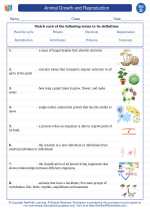Cells
A cell is the basic structural and functional unit of all living organisms. It is the smallest unit of life that can replicate independently, and cells are often called the "building blocks of life."
Types of Cells
There are two main types of cells: prokaryotic cells and eukaryotic cells.
Prokaryotic Cells
Prokaryotic cells are simple, single-celled organisms that lack a nucleus and other membrane-bound organelles. They include bacteria and archaea.
Eukaryotic Cells
Eukaryotic cells are more complex, and they have a true nucleus and membrane-bound organelles. They make up plants, animals, fungi, and protists.
Cell Structure
Cells have a variety of organelles that perform specific functions within the cell. Some of the main organelles include:
- Nucleus: Contains the cell's genetic material and controls the cell's activities.
- Cell Membrane: Surrounds the cell and regulates what enters and leaves the cell.
- Cytoplasm: A jelly-like substance that fills the cell and suspends the organelles.
- Mitochondria: Produces energy for the cell through cellular respiration.
- Endoplasmic Reticulum: Involved in the synthesis of proteins and lipids.
- Golgi Apparatus: Modifies, sorts, and packages proteins and lipids for storage or transport out of the cell.
Cell Functions
Cells perform a variety of functions to sustain life, including:
- Metabolism: Cells carry out chemical reactions to maintain life.
- Growth: Cells grow and divide to form new cells.
- Reproduction: Cells can reproduce to create new organisms or replace damaged cells.
- Response to Stimuli: Cells can respond to external or internal stimuli.
Conclusion
Cells are the fundamental units of life, and understanding their structure and function is crucial in the field of biology.
.◂Science Worksheets and Study Guides Fourth Grade. Animal Growth and Reproduction
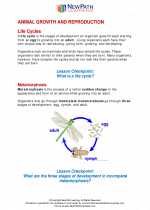
 Activity Lesson
Activity Lesson
 Worksheet/Answer key
Worksheet/Answer key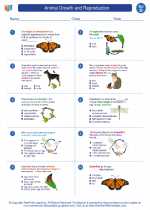
 Worksheet/Answer key
Worksheet/Answer key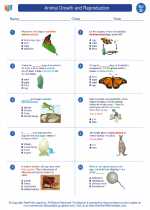
 Worksheet/Answer key
Worksheet/Answer key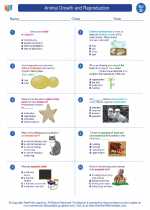
 Worksheet/Answer key
Worksheet/Answer key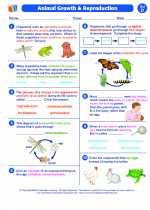
 Vocabulary/Answer key
Vocabulary/Answer key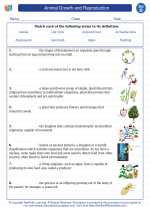
 Vocabulary/Answer key
Vocabulary/Answer key
 Vocabulary/Answer key
Vocabulary/Answer key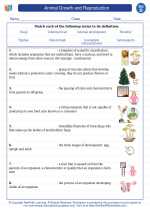
 Vocabulary/Answer key
Vocabulary/Answer key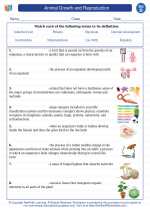
 Vocabulary/Answer key
Vocabulary/Answer key